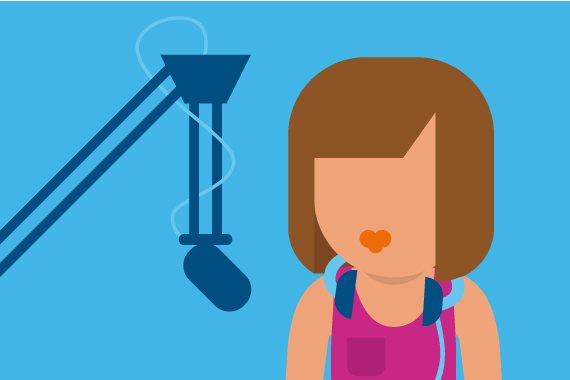Experiencing PTSD as a young female
Earlier this year, I was diagnosed with Post Traumatic Stress Disorder (PTSD). Remember when Britney Spears claimed she’d beaten the record for the 100 meters? Yep that’s roughly where I was in terms of denial upon first hearing this out loud- it was a colossal shock to the system. Without ever intentionally making assumptions, PTSD was something I’d always associated with male, typically middle-aged ex-veterans. In all likelihood, this was primarily due to what I’d seen when growing up in Hollywood war films, books, and Grey’s Anatomy. So, as a 21-year-old female, I struggled massively with the cognitive dissonance that came as a Batman and Robin-esque sidekick to this diagnosis, and it took quite some time to come to terms with.

It was only when I began doing more research that I found myself identifying with more and more of the traits that a person with PTSD usually upholds. I’d always attributed the all too familiar ‘fuzzy’ feeling that I now know is disassociation, to a lack of sleep, the wrong glasses prescription, or just simply a boredom with life that never quite made sense. I now know and understand that in actuality, this was and is the brain’s frustratingly genius method of dealing with trauma. For the years leading up to this discovery, however, there was a lot of time spent and (arguably) wasted being furious at myself for not engaging with the wonderful life, friends and family that surrounded me. Having been diagnosed with both anxiety and depression at an earlier age, I’d been put on various medications that were supposed to ‘fix’ what was going on, but instead, continued to let me down the way that ABBA keep doing every single day that they don’t bless us with their reunion tracks. I was frustrated.

Luckily for me, I was diagnosed, and got help. What kind of help, I hear you so desperately ask? Eye Movement Desensitisation Reprogramming (EMDR). I won’t go into detail on the ins and outs of this psychotherapy technique, but if you’re interested, definitely give it a Google. It truly, truly, has served me wonders. A combination of my wonderful therapist, fairly rigorous sessions and an acceptance within myself have led me to a space where I now feel more in control of my life than I ever have before.
I now feel frustration only at this misconception around PTSD itself. The Department of Veterans Affairs National Centre for PTSD states that women are more than twice as likely to suffer with PTSD as men. Additionally, according to PTSD UK around 94% of survivors of rape or sexual assault are estimated to develop symptoms, with 50% of those becoming long term. So why is it that the male orientated stigma attached to PTSD, originating with the ‘shell shock’ experienced by soldiers in the world wars and Vietnam War, still lingers? This disorder comes in all shapes and sizes, and perhaps with more information being given to (particularly young) women, we can get more people get the help that they might need. I’m certainly going to give it a good go.
Image 1 from CreakyJoints.org
Image 2 from teenvogue

